dreams, sound, and the unwritten codes of black music. an interview with gaika
on importance of documenting black musical histories, building artistic canons, and refusing cultural erasure.
Last summer, I spoke with Gaika. I’ve been interested in his creative process as a musician for a long time, and his varied, deep, rich discography warrants the attention to detail of fans and critics alike.
At the time, outside of this conversation, I was particularly focused on how Black artists can approach individual artistic projects—like a film—through a multidisciplinary lens, crafting immersive worlds from a singular purview.
Films like Eve’s Bayou and Daughters of the Dust profoundly shaped and piqued this interest. They’re what I imagine having synesthesia must feel like - sounds, colours, imagery and dialogue - all interweaving together to fully envelop an audience.
I wanted to explore Gaika’s perspective on this, given his fiercely multidimensional practice and deep-rooted commitment to scholarship—something instilled in him from an early age through his family and carried as a guiding principle throughout his career.
We also discuss how music journalism can be a form of true scholarship, particularly when it resists the strong oppositional forces that seek to dilute Black music’s vast, far-reaching legacy. “The music industry is controlled by non-Black people, and it’s structured in a way that makes it harder for Black artists to establish legacies,” he says.
At the core of our conversation is an unflinching commitment to staying true in the face of systems designed to flatten the potential of Black artists—especially those who seek to unearth our histories, persist despite obstacles, and do the work to uphold Black memory, culture, and our collective future.
Read below!
Michelle
MICHELLE KAMBASHA
Okay, so I want to speak to you broadly about your music, but also your immersive work. Like your last record (Drift, 2023), its influences and how it came together. I wanted to talk about the influence of dreams in your album—how dreams became a core jumping point for creating your last record.
GAIKA
Yeah. It’s really interesting that you picked up on that.
I started making music because I loved it—but by accident. There’s never been a part of me that was like, “Oh, I want to be famous,” or “I want to earn a living from music.” I just fell into it because I surrounded myself with music and music culture in England.
I had an intuitive understanding of music. People would always ask me about it, and I kind of always knew the next lyric in a song, even if I hadn’t heard it before. It’s like I could predict where the writers were going. But I didn’t know I was good at music—I just knew I liked it.
Because of that, my approach was very unstructured. I didn’t have formal music education. I didn’t know the right way to do things or how to play an instrument properly, but I could pick up any instrument and make it sound like something. I didn’t know music; I felt it.
For me, music flowed through me, like communication with my subconscious. I wasn’t always in control of it. In fact, my best work came when I just let go and let it happen. My background in visual arts was meticulous, so making music was the opposite—free-flowing, messy, and instinctive.
When I made this album, I was thinking about how to create something hypnotic, something that felt like dreaming. It was a reaction to the industry—a response to being in rooms full of people trying to structure something that is, by nature, unstructured. It wasn’t making me better—it was just making me unhappy.
So I went back to why I started making music: to access subconscious feelings and put them into form. The dream state felt like an honest way to do that.
There’s also security in that. Dreaming is the last place where I can shut everything out. I rarely have dreams where I don’t know I’m dreaming—most of them are lucid. That album was made in a vault inside another vault, inside my head. And when I think about it now, I ask myself: What was I trying to protect? I think, ultimately, I was trying to protect my integrity—by making exactly what I wanted and letting it be shaped by how I felt, rather than by external forces.
MK
Yeah. And I think if you're making music from a dream state first, then letting others structure it later, there’s always a level of watering down. There's a risk of dishonesty to the essence of where it came from, because it's such an insular space.
GAIKA
Exactly. And it’s funny—people know Drift is good, but I think white audiences don’t get it in the way Black audiences do. Even though it’s a rock record—like Hendrix—it speaks a certain language that Black alternative audiences just understand.A lot of my positive reviews have been from middle-class white critics who admit they don’t understand it. To me, that feels like success. Because the people who do get it—Black alternative audiences—immediately connect with it. Weirdly, the biggest response has come from the hip-hop world, which I find hilarious but unsurprising.
As Black artists in alternative spaces, we often express ourselves relationally—like, "If these people understand it, then it must be good." I got tired of that. I wanted to make something purely driven by my own internal monologue. And it turns out that people with experiences similar to mine do decipher the language, while those without that experience simply don’t. They expect Black music to be guns, drugs, naked women, and fast cars—and when it’s not, they don’t know what to do with it.
The Last Angel of History (2007). Dir. John Akomfrah, Music. Trevor Mathison for Black Audio Film Collective
MK
Right. And it’s ironic because, on the other hand, white critics will defend hyper-stereotypical Black music to the death—like that’s the only Black experience. But when Black artists exist outside of those confines, suddenly, they don’t know how to process it. It shows how limited their understanding of Black expression really is.
Also, what you said about the subconscious and collective memory is important. In Black scholarship and art, there’s this idea of a collective memory—something that stems from the internal but is externally understood. A kind of unspoken language, almost like a shibboleth—you don’t have to say it, but you get it.
GAIKA
Yeah, yeah. I mean, I think that’s definitely at the core of it. Philosophically, I’ve written it down a couple of times, but I guess it’s at the foundation of a lot of my work—this idea of a ghost, which is that collective memory is the moment.
It’s the reason you can instantly tell when a reggae song was produced by a Black producer. It’s the moment when you see a funeral procession in New Orleans and recognize its echoes in West African or Caribbean traditions. You immediately understand what’s happening, even if it isn’t explicitly explained.
It’s not quite definition—it’s more of a defiant ephemera. A spirit of thriving in the face of death, of survival embedded in music and oral cultural transmission. It’s saying, "This is our secret. We’ll never write it down, but we’ll pass it on to our children through a look, a nod, or the placement of a snare drum."
That’s something I’ve always tried to encode in my music. And what’s funny about Drift is that I probably captured that essence most effectively using instruments and conventions that aren’t always associated with Black music.
I did that because I like all different kinds of music. Also, the album was made collectively with younger artists who looked up to me. It was recorded organically, in my own studio, through moments of understanding, conversation, and even debate about the world. Those interactions naturally made their way into the music.
That’s what I really wanted—to fall back in love with making music. Because when you step outside of that, you lose something. The industry strips it away, and production becomes robotic, purely about monetization rather than the transmission of cultural knowledge.
Call it groove, call it swing, or something else entirely—but it’s there. And I don’t think you can create that on your own.
MK
No, I don’t think so either.
GAIKA
It’s like non-linear timing—you need other people in the room for it to happen.
MK
That connects to what we were saying about oral traditions. But I also wanted to ask about dreams—dreams as magic states or fever dreams.
I think of films like Daughters of the Dust or Eve’s Bayou, films that have this almost ghostly, magical quality, combined with compositions that enhance those ideas. That long-lasting, sometimes eerie, oral tradition that survives.
When you think of chants, or the way Black music, especially African music, influences so many genres—choral music, call and response, incantations—there’s this dreamlike quality to it. Maybe it stems from traditions like Vodou. I don’t know if “Afro magic” is the right term, but do you see a connection between dreams and that kind of magic?
Daughters of the Dust (1991) dir. Julie Dash. Music, John Barnes.
GAIKA
I believe there’s power in a lot of things, and what we perceive with our senses isn’t all that exists. When you're in that liminal space between sleep and waking, you perceive the world differently.
The same happens when you sing from the heart. There’s a reason so many religions and spiritual traditions use chanting, singing, spinning, and other hypnotic practices to access altered states of consciousness. African traditions have always understood that power and been honest about it.
That can run counter to more militaristic, structured expressions of sound. And I think that’s why we perceive certain music—Japanese traditional music, Arabic maqam, or African spiritual music—as “ghostly.” It’s a contrast to the Western philosophy of control and order.
It’s about speaking to things you can’t see but still know are there. That’s what makes African traditions powerful—they endure through displacement, slavery, and violence. They survive because they’re carried forward in the music. It’s untappable, ‘unbottleable’, and uncopyable.
For me, it boils down to the understanding that there is life in all things, and all things can communicate.
Western notation and musical structures are based on control—on saying, "This is the correct way to compose music."That’s sonic manifest destiny to me—forcing everything into a rigid framework.
But real music comes from the internal river, from sensing the world in ways beyond what can be written down. It’s not just about what you see or hear—it’s about what you feel.
That’s why some music feels soulless—because it’s disconnected from that natural flow. And why African musical traditions remain the opposite of that—they’re alive, unpredictable, and deeply spiritual.
MK
Yeah, and colonialism really did a number on Black people, especially in the diaspora, but also within the African continent. People were slowly divorced from African spiritualism through fear, pushed toward Judeo-Christian traditions instead.
Not to say those traditions are inherently bad—everyone has their own path—but one of the biggest opponents of African spiritualism today are often African people themselves. That’s colonialism at work.
At the same time, as you said, those traditions survived in places like Cuba, Haiti, and Brazil. They weren’t erased—they adapted. That resilience is powerful.
GAIKA
Yeah, exactly. And Brazil is a big example, too.
I think it’s funny because, especially in America, I have family members who are evangelicals. And I’m like, "You reject African spirituality, but the way you worship in church—the singing, the movement, the call and response—is African."
Your church doesn’t look like a European Catholic church. You’re carrying forward the same traditions your ancestors did, just in a different setting.
That’s why I don’t believe colonialism was powerful enough to erase us. It didn’t kill us. We adapted and subverted it, sometimes without even realizing it. Just by being present, by existing, we preserve those traditions.
Eve’s Bayou (1997) by dir. Kasi Lemons. Music by Terrence Blanchard.
MK
So it’s an adaptation rather than a removal or destruction.
GAIKA
Exactly. And that connects to my musical practice.
There’s no musical space I can’t be in. I reject the idea that something “isn’t Black music” just because it doesn’t fit certain stereotypes. Classical music, electronic music—whatever I choose to engage with, it carries my perspective.
I understand the power of that—of what you called African magic. And that’s what I truly believe in.
MK
I also wanted to ask about the importance of scholarship in your work. Your Empire project is a great example.
I work with a composer [Sultana Isham] who recently discovered a new concept she wants to explore. When she Googled it, she found very little on it [Papa Joes’s], so she’s writing a piece to document it herself.
What role does scholarship play in your practice, particularly at the intersections of music, culture, race, and politics?
A jazz funeral in New Orleans, interveaving African traditions
GAIKA
I was raised in an academic household where knowledge was power.
I never understood people who liked being ignorant. I always wanted to know how things worked—to be good at them. That inquisitiveness led me to scholarship.
To me, scholarship doesn’t mean you have to go to university—it’s just about understanding what you’re doing. Knowing its history, its future, and documenting it so others can learn.
I think the industry actively discourages scholarship within Black music—it wants us to stay unstructured and ahistorical.
But I refuse to play that game. That’s why I take this approach, even if it makes people uncomfortable. Because the alternative is not knowing things just to make others feel comfortable—and that’s not an option.
MK
Then the other option is not knowing things just to make people feel comfortable. And that’s not really an option.
GAIKA
Exactly. At the end of the day, as my mum always said, "Think about what you’re doing."
That’s it. Scholarship is hugely important to me—not in an elitist way, but in the sense of truly understanding what you’re doing. Knowing the history, the future, how it works, what it is, and documenting it so others can build upon that knowledge.
Too often, rap culture is framed as a game of authenticity—a test of prowess, violence, or natural-born athletic ability. That’s deliberate. It’s designed to ensure that we don’t build a canon of our own.
So instead, we’re always positioned as outsiders, only evaluated based on how much money we make, rather than our contributions to music and culture. Contrast that with classical, jazz, or rock music, where there’s structured recognition of artistry, innovation, and influence.
It’s deeply cynical. And I decided early on that I wasn’t going to play into it. I wanted to do the opposite.
Even though, fundamentally, my musical practice is quite unstudied—I didn’t train formally—once I started doing it, I thought, "Let me understand why I’m good at this." Because I knew why I was good at other things.
So I worked backwards, analyzing my instincts with an academic lens, the same way I was raised—to approach things with a scientific curiosity.
MK
Yeah. And I think one of the biggest issues in contemporary Black music is that we’ve become obsessed with its immediacy.
It’s all about the moment, the feeling, the new. And while that’s powerful, it also means that there’s little attention given to the scholarship—the roots, the history, the building blocks.
That’s why a lot of younger Black people feel disconnected from the origins of our genres. Take electronic music, for example. It’s a perfect case of how Black music keeps evolving, but without proper care and attention given to its legacy.
The focus is always on what’s next rather than where it came from.
GAIKA
Exactly. And that’s deliberate, too.
The music industry is controlled by non-Black people, and it’s structured in a way that makes it harder for Black artists to establish legacies. The entire system is set up as a transfer of wealth from Black artists to white men.
Streaming revenue is driven primarily by hip-hop, R&B, and Black music. But look at where that money actually goes—labels are essentially just rights management companies now, profiting from catalogs they don’t even own.
MK
I feel like it’s never been worse.
GAIKA
It really hasn’t. You’ve got these legacy rock acts paying each other absurd amounts of money from the revenue that comes from people streaming the latest R&B and rap music.
And it only works if Black artists are constantly generating new trends, rather than developing or solidifying existing ones.
The industry keeps us in competition, rather than in conversation with one another. And that prevents us from collectively establishing cultural infrastructure—things that make music last.
I’ve noticed that if you come in and say, "I’m interested in building a legacy, pushing boundaries, and creating something lasting," the industry will actively take your legs out from under you.
And you have to ask yourself—why?
Because I’m not saying, "I want to be the biggest star and make all the money." What I’m saying is, "I want this thing to endure." And that makes people uncomfortable.
I once had an argument with one of the biggest musicians in the world. He was going on about how ownership is the only thing that matters in music.
But at the same time, he was bragging about how proud he was to have brought non-Black executives into the industry.
And I thought, "See? Your entire outlook is built on the idea that you live and die in this system. You’re not thinking about what happens next."
MK
Yeah. If you start to view things through that lens—where our interactions with the industry are structured around expecting obsolescence—then suddenly, a lot of things make sense. That’s why I think scholarship is so critical. Across genres, across mediums. It’s the only way to counteract that erasure. And we have to start writing things down. Even if it’s coded, even if it’s informal—we have to document.
GAIKA
That’s the currency. We can’t rely entirely on collective memory. Oral history is powerful, but it’s also vulnerable. I’ve had to explain to a lot of my non-Black friends that we do have unspoken cultural cues—little social rules, gestures, things that go unsaid but are understood. We assume that everyone has that. But they don’t.
And that’s why it’s so easy for those things to be exploited. When you don’t write things down, they can be rewritten for you. That’s why scholarship is so crucial.
MK
A part of scholarship is music journalism, which I think is deeply undervalued. Writers like Hanif Abdurraqib, Greg Tate, Neil Kulkarni, Danyel Smith, and many others—these are scholars. Not all music journalism is scholarships but it can be when it’s done with care. And I think we need to celebrate those voices, because they’re often few and far between.
GAIKA
I’ve had too many experiences with people who have an agenda. There’s a lot of lazy journalism out there—people who don’t understand what they’re listening to but still write about it anyway. And that has a real impact on an artist’s life. I’ve seen myself characterized as some dark, brooding figure on the edge of the world. And I think, "That’s funny, because no one in my real life has ever described me that way." But it happens because the industry wants certain narratives to exist.
Music journalism in Britain is a game of preaching to the choir. If you challenge the dominant perspective, you won’t rise to the top. That’s why so many of the major voices in music journalism today are people who reinforce existing structures, rather than people who genuinely engage with the art.
MK
Then, yeah, it does matter.
GAIKA
It absolutely matters.
People misunderstand this. It doesn’t matter how much respect you have in the streets—that’s not what determines whether you eat or not.
People want to believe that it’s public opinion and grassroots support that propels musicians to success.
But that’s not the reality. The reality is: Are you saying the right things to the right people
MK
Yeah, it’s not easy. Especially now, when there’s so little space for music journalism. The fewer opportunities there are, the more those gatekeepers feel pressured to conform. More than ever, there’s a narrow view of what journalists can cover and how they can write about it. The scope for real critique, for deep analysis, has shrunk.
I can think of a few big writers—some are more cultural critics than music journalists. But in terms of a broad range of great music thinkers? I can’t think of many, but that might be a ‘me’ issue. There are systemic reasons for that, of course, which I has sympathy for but it’s still bleak to think about.
And like you said, it’s a shame that the people who really care about this music—the journalists who put in the work—can’t make a viable career out of it. It’s a strange time. And because it’s such a strange time, maybe the best thing we can do is look back?
GAIKA
Yeah. I mean, I really loved the blog era of music writing. There was so much interesting journalism coming from people who were writing purely because they wanted to. There was this excitement—"This is new technology! My voice can be heard!"
And then it just… disappeared.
At the same time, people stopped subscribing to magazines. Social media steamrolled everything.I used to love music blogs because they were niche. They were run by people who were deeply invested in their specific corner of music, and that’s what made them valuable.
Now, it feels like we’ve gone backwards. A few aging, out-of-touch music journalists still have this disproportionate influence, even though no one’s really reading their work—except for a handful of industry insiders. So when I look at all of this, I just see it as part of a larger assault on intellectualism.
MK
Because art—especially music criticism—is often an afterthought. And people don’t realise that all these changes are happening now. By the time you do realise, it might already be too late. I don’t want to sound fatalistic, but it could be too late to save this. And the problem is, people weren’t thinking about it at the start.
So, on a different, quick note—I wanted to ask you about your work in film composition.
I know you’ve done composition for your own projects, and I think for your brother’s work as well? Was it a theme you did for him, or was it full composition?
GAIKA
Yeah, I’ve done some work for my brother, but for Kitchen, they didn’t end up using my compositions. I’ve done a lot of music for short films, art films, commercials—things like Wings, Noughts & Crosses, and other projects.
MK
TV commercials too, right?
GAIKA
Yeah, loads.
Honestly, I’ve always wanted to be a filmmaker.
MK
Yeah, I was going to say!
GAIKA
That was my original plan.
I studied to be an engineer, then decided I didn’t want to do that. I ended up in club culture, the nightlife economy, and eventually thought, "I want to do something more substantial."
So I started working towards filmmaking—first from a design perspective, then through visual art, and then through making music videos. And that’s how I fell into making records. When I realised that the value I saw in my work wasn’t necessarily valued by the music industry, I had two choices: Change who I was to fit the industry’s expectations and stay true to my goals and my practice, which includes music, contemporary art, and filmmaking.
And I chose the second option. When I signed my record deal, I think they assumed I was just part of that 2017 “urban wave.” But when they realised I wasn’t going to be the next Stormzy or fit into their mold, they didn’t know what to do with me. I thought I was signing with a place that would champion all the weird and wonderful diversity of my practice. But they just wanted someone to scale.
So I stuck to my plan.
And part of that was filmmaking. Being around it. At the same time, my brother’s work was blowing up, so I was naturally around film even more. With the money I made from touring and music, I didn’t buy a car. I didn’t buy a house. I built a studio.
And now, I feel like I’ve come full circle—I’m back to doing what I was doing, but with all this new experience.I taught myself production, so when people started telling me, "Your music has a cinematic quality," I was like, "Yeah, because that’s how I started—making music for visuals."
So when someone asked me to do a film score, I said yes. It started with an Adidas project. They initially wanted to use library music, and I was like, "No, I’ll score it." And that was it. It took on a life of its own.
June Jordan on here libretto for the opera I Was Looking at the Ceiling and Then I Saw the Sky for BOMB
MK
I love that.
One of the things I really want to focus on with my Substack is film composition. It feels like there’s a renewed interest in it—especially Black composers scoring for art-house films, mainstream films, and experimental projects.
It’s so fascinating to see how film and composition interact, especially in Black cinema. I think of films like Eve’s Bayou—the way the score deepens its dreamlike quality. Or the Black Audio Film Collective’s The Last Angel of History, which was about Afrofuturism. The music in that film felt like a wink to Blackness—coded, internal, layered.
I love teasing out those moments, because I think people often see artists in a single dimension. For example, a lot of people don’t know that Toni Morrison worked on opera and classical music. They associate her with Jazz because of the novel, but they don’t realize she actively engaged with classical composition. Same with June Jordan—she did incredible work in other disciplines that people don’t talk about.
And I feel like you’re the same. You’re not doing this as a side hustle—it all connects.
GAIKA
Yeah. I’ve done work with Double Morphology, too. That was one of the best projects I’ve ever been part of. I think it’s crucial for us to be part of the scoring conversation. Scoring films is like this golden goose—it’s prestigious, but the gatekeeping is insane. People in the traditional film composition world know that a kid with Fruity Loops can out-compose them. That’s why there’s so much snobbery.
MK
People want you to pick one thing.
GAIKA
Yeah. And I’ve battled with that.
But in the end, I just keep making what I make. And I hope it means as much to someone as it does to me.


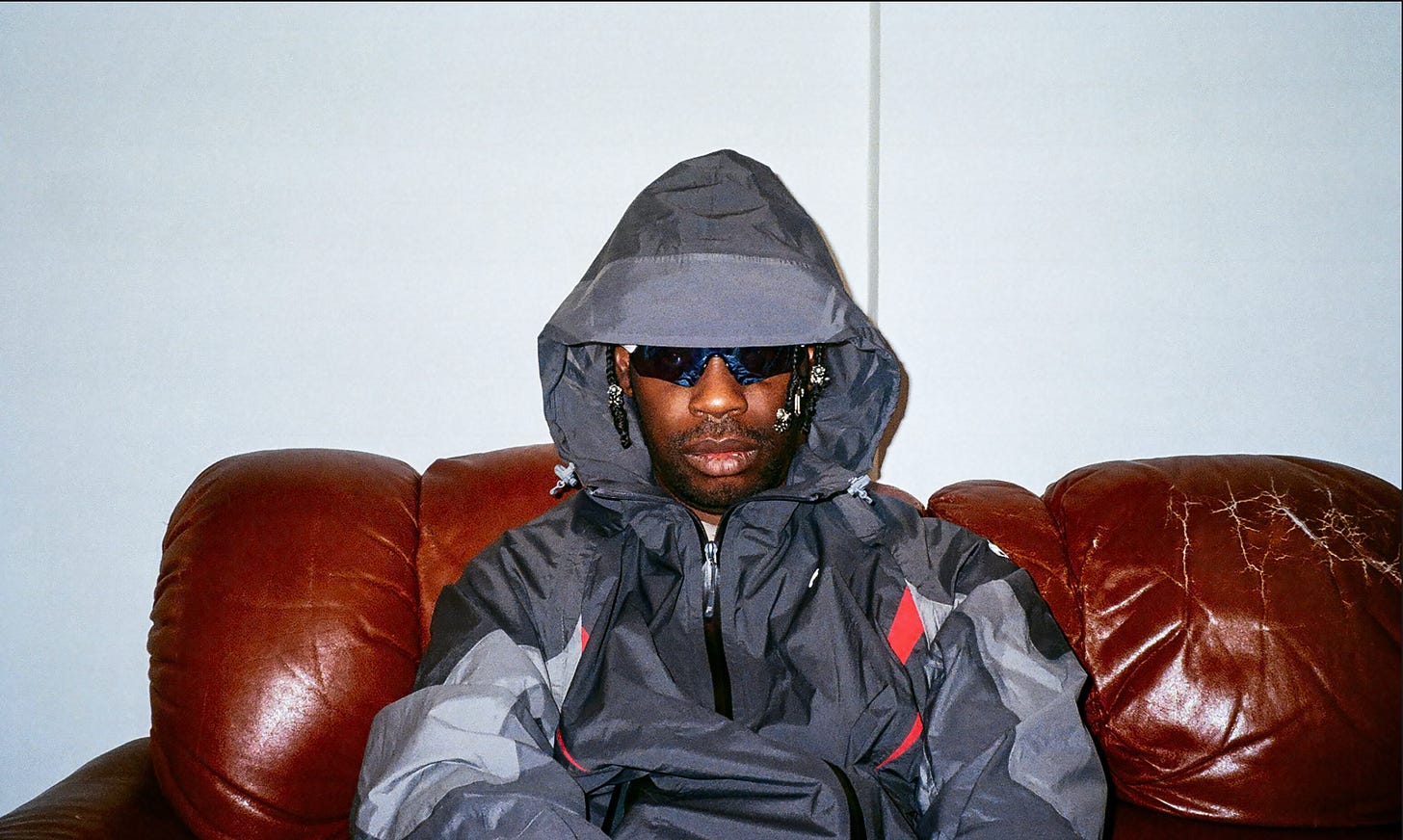
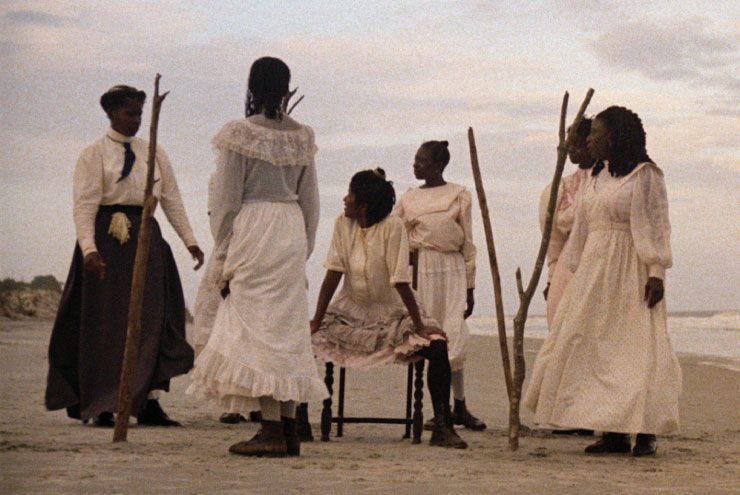
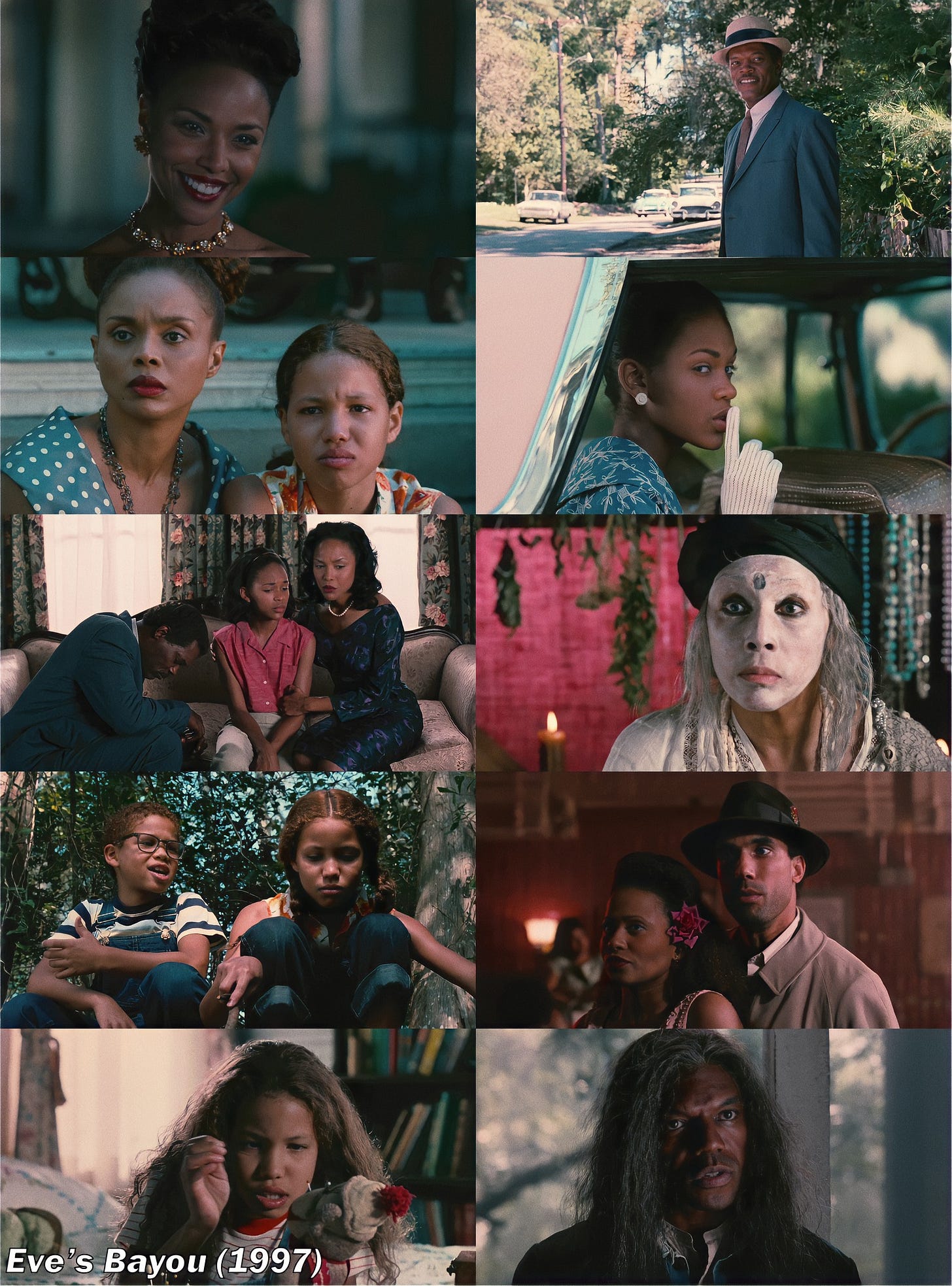
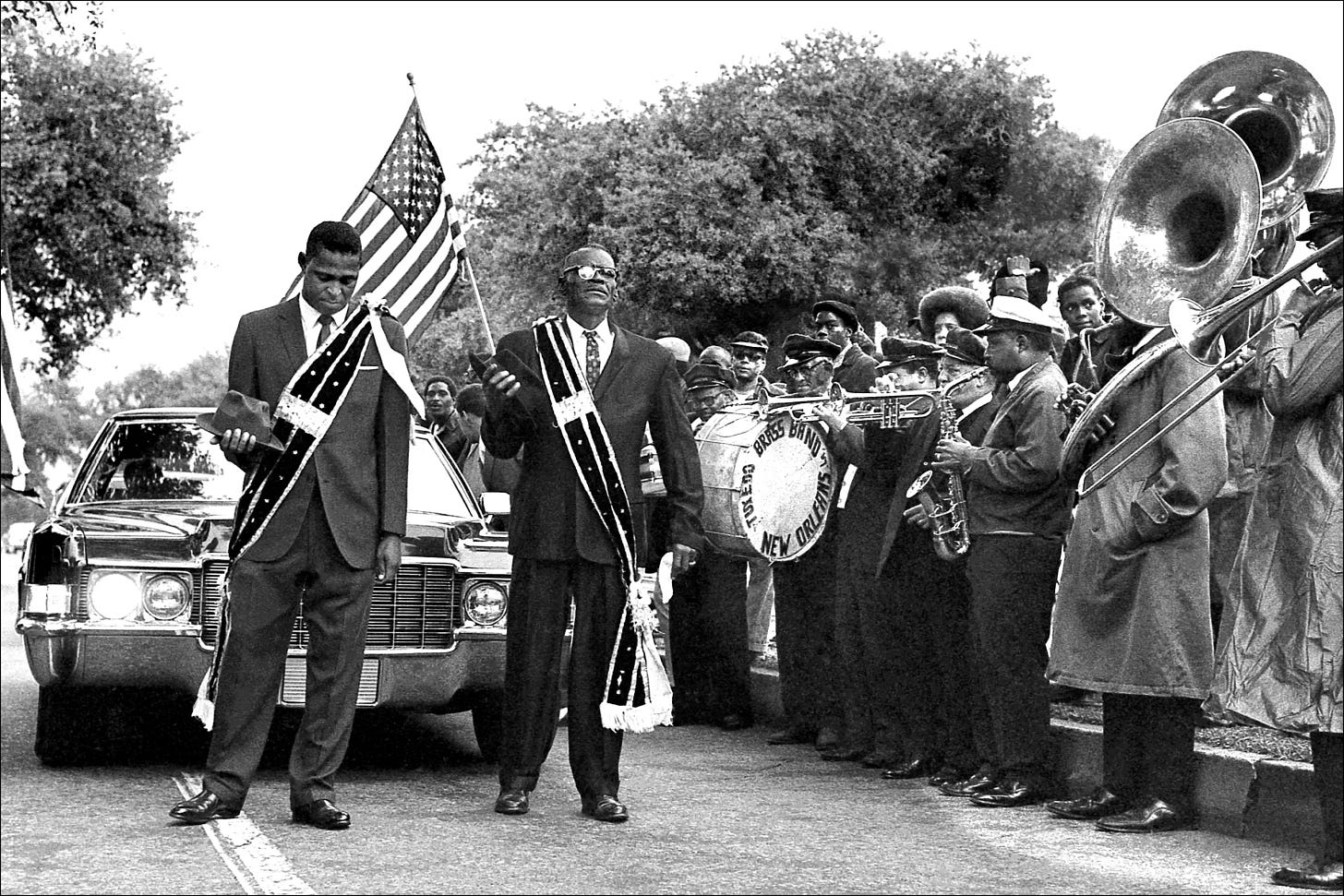

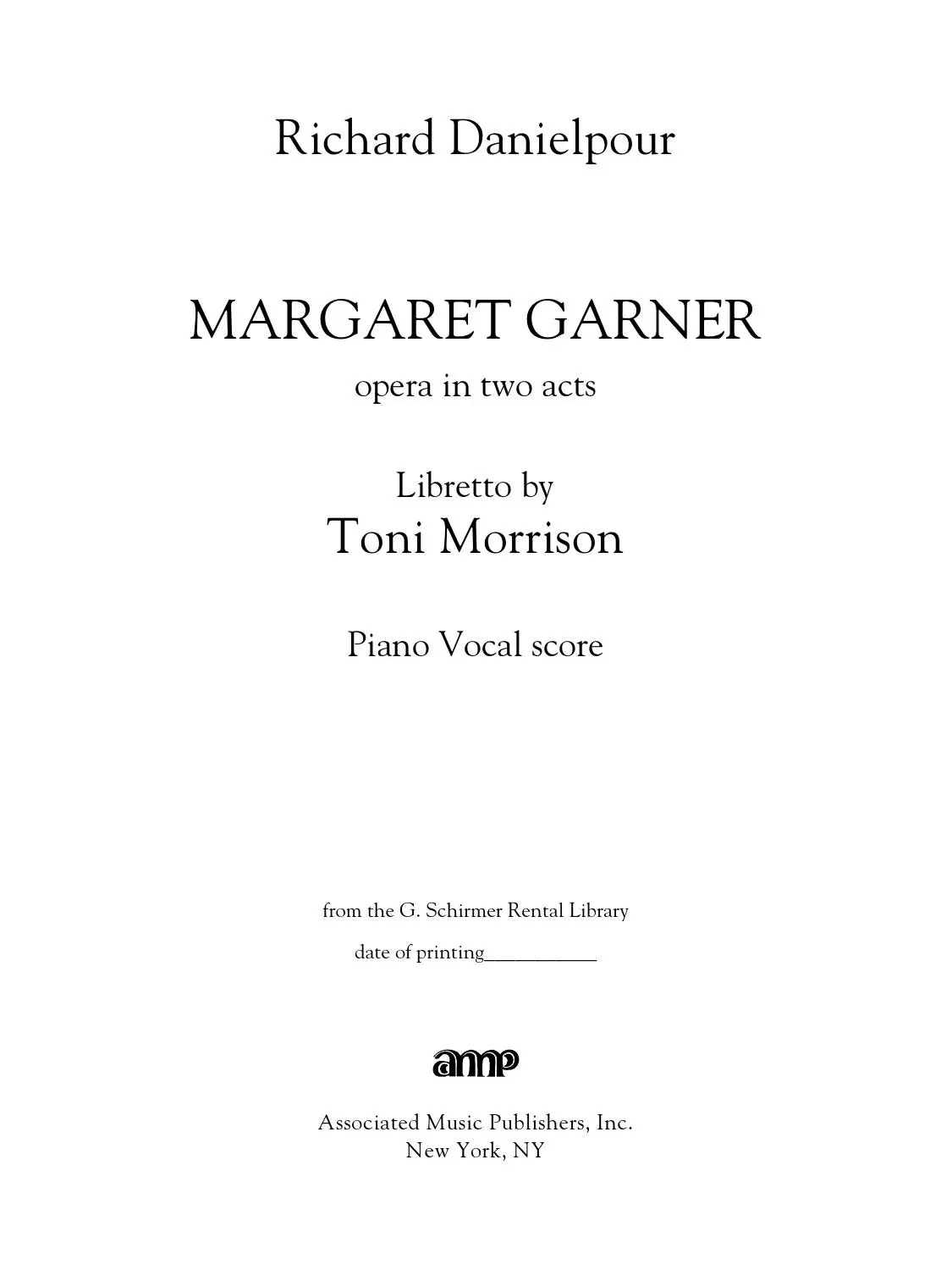
Hello, good day everyone. I want to use this medium to share with you how my life changed from a Iberia food truck driver to who I am today. This can be anybody and it can still be you, because time is never too late. My name is David Johnson from Brooklyn, New York city! Playing the lottery was my passion. I've played for years not winning anything before I met with Dr Marcus. He was the man who gave me numbers to play after putting to work. He makes me believe in spirituality. Because I was skeptical about it. I went out that morning to play despite being sick that day. That evening a friend of mine who works in the same company called me and said 'Dave, somebody won the Powerball at the gas station. The next morning I checked my numbers. I still don't believe I've won so I have to stop back at the gas station to finally check my ticket before going into work. I looked at the bord and I'm like "oh my God" I won $298.3 million. jumped up and down the store.... Quickly got back in my car, turned the music up and zoomed home. I was so happy I couldn't even eat. I was hungry but my stomach was full! All thanks to you Dr. I'm forever grateful I never believed but he changed my life, reach him today (drmacusspellcaster@gmail.com) or WhatsApp +234 8110492028 I believe he will be there for you as well..
Hello, good day everyone. I want to use this medium to share with you how my life changed from a Iberia food truck driver to who I am today. This can be anybody and it can still be you, because time is never too late. My name is David Johnson from Brooklyn, New York city! Playing the lottery was my passion. I've played for years not winning anything before I met with Dr Marcus. He was the man who gave me numbers to play after putting to work. He makes me believe in spirituality. Because I was skeptical about it. I went out that morning to play despite being sick that day. That evening a friend of mine who works in the same company called me and said 'Dave, somebody won the Powerball at the gas station. The next morning I checked my numbers. I still don't believe I've won so I have to stop back at the gas station to finally check my ticket before going into work. I looked at the bord and I'm like "oh my God" I won $298.3 million. jumped up and down the store.... Quickly got back in my car, turned the music up and zoomed home. I was so happy I couldn't even eat. I was hungry but my stomach was full! All thanks to you Dr. I'm forever grateful I never believed but he changed my life, reach him today (drmacusspellcaster@gmail.com) or WhatsApp +234 8110492028 I believe he will be there for you as well..